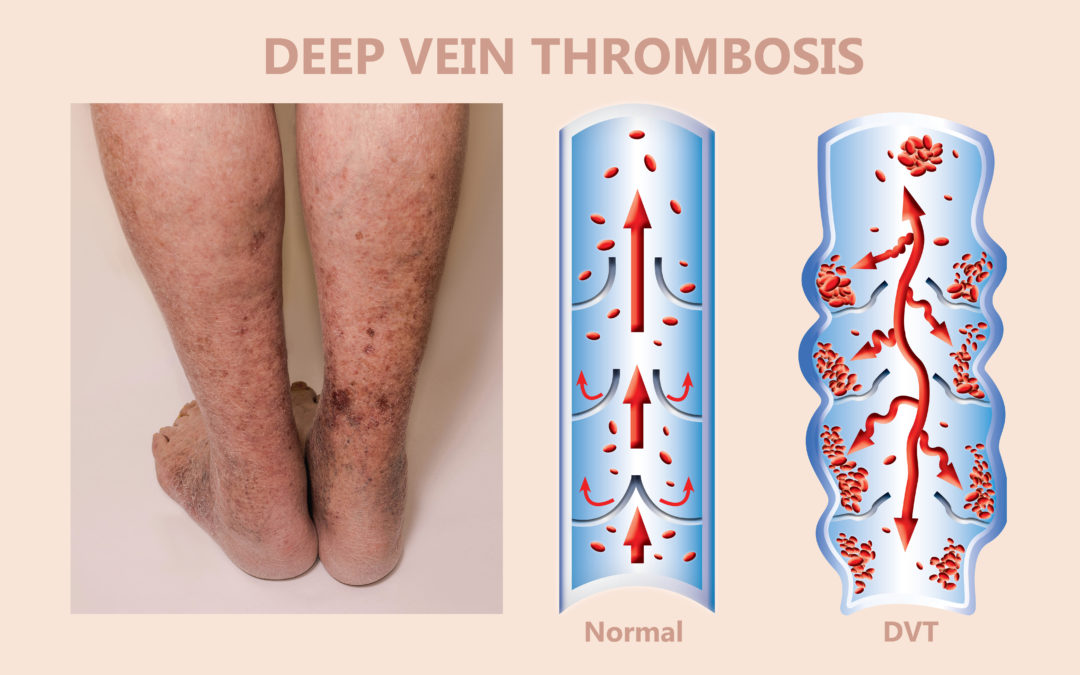Understanding DVT or Deep vein thrombosis is a medical condition that can become very serious if it is left unchecked. Studies have indicated that patients with untreated varicose veins can be at higher risk for DVT. At Vein Specialists of the Carolinas, we want all of our patients to understand the potential risks associated with varicose veins, including DVT, to highlight the importance of a thorough vein evaluation when visible symptoms arise.
Understanding DVT: What is it?
DVT occurs when a blood clot forms in a deep vein of the body, usually in the leg. This clot may not make its presence known with visible symptoms, but it is a dangerous condition just the same. If the clot breaks loose from its original location, it can travel through the bloodstream to the lungs, where is can cause a potentially deadly event known as a pulmonary embolism.
Understanding DVT Symptoms
A blood clot may form in the vein without any noticeable symptoms. In fact, some people may not even know they have DVT until a pulmonary embolism occurs. If symptoms do appear, they may include the following:
-
Pain or discomfort in the lower leg
-
Swelling around the area of the affected vessel
-
Skin in the area may become red or warm to the touch
If these symptoms appear, it is important to have them evaluated by a medical professional as soon as possible to prevent further complications. If DVT is left unchecked and leads to a pulmonary embolism, symptoms might include:
-
Shortness of breath or difficulty breathing
-
Chest pain that intensifies with inhaling or coughing
-
Dizziness and profuse sweating
-
Increased heart rate
-
Coughing up blood
These symptoms indicate the need for emergency medical attention so that the clot can be treated and lung function can return to normal.
Treatment for DVT
The primary goal in the treatment of DVT is to manage the blood clot so it cannot lead to a more serious health risk. This usually begins with the administration of a blood-thinning medication, given orally, by injection or intravenously. If the clot is extremely large or life-threatening, thrombolytics or medications to dissolve the blood clot may also be given.
If the blood clot cannot be successfully treated, a filter may also be placed in the vena cava, a large abdominal vein. The filter will prevent a blood clot from traveling to the lung if it does break free from its initial location. The filter is typically left in the vessel until the threat of a pulmonary embolism has passed.
If you have varicose veins and you are concerned about your risk for DVT, talk to a vein specialist. There are many minimally-invasive treatments today that effectively eliminate unsightly varicose veins and their potential complications. To learn more about your options in vein treatment, contact the Vein Specialists of the Carolinas in Gastonia at 704-861-2072 or in Charlotte at 704-544-5245.
“All We Do Is Veins, All Day Every Day.”

